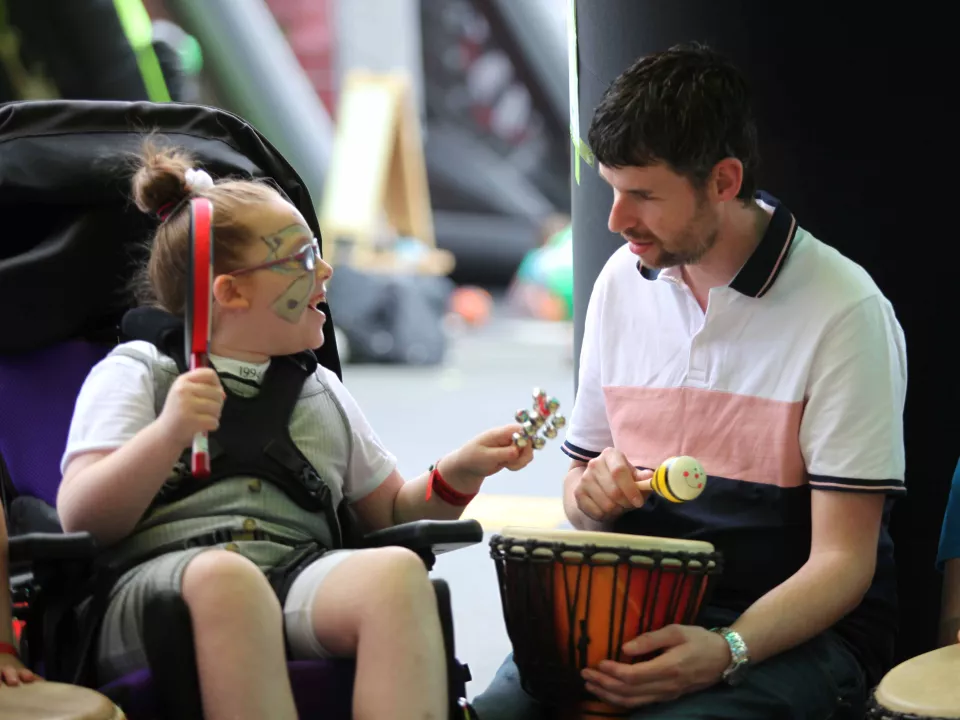
Everybody appears to be obsessed with preparations that go on for weeks. These confront us at every turn, and we often feel alienated or isolated by our grief.
As we contemplate Christmas, especially in the early years of our bereavement, we wonder how we will survive. It is normal for parents to feel they just want to ’cancel’ Christmas.
The festive season will never be the same as it once was because the family is not the same – not complete. If this is the first year, it will be painfully different from previous years. We may find the anticipation and stress of what we ‘should’ be doing very hard to deal with. Do we decorate the tree, send cards, give presents, attend a place of worship, join in the festive meal, go to a family party? For younger children especially, do we continue with important traditions of trips to the shops, the decorations, a pantomime, and a visit to see Father Christmas?
Many bereaved parents find the run up to Christmas, with all the accompanying anticipation, can be more difficult to cope with than the actual day itself.
We hope that these might help and support you as you prepare for the festivities…
- Don’t feel you have to go to the office party or festivities with friends/extended family if you can’t cope with them.
- Sometimes we don’t know what we will feel like doing until the last minute. Don’t feel you have to have a plan.
- Let close friends/family know that you are struggling and that you need to be able to talk about your child at this important family time.
- Tell people that you need to have your child acknowledged by others at Christmas - to see their name in a Christmas card or to remember them with a toast during Christmas means so much, but many people would be scared of doing this unless you tell them.
- Within the family try to talk to each other, about how you are feeling, or what you all might want to do. Thinking and talking together can help us to prepare ourselves for Christmas, and sometimes when these plans go right, the day can bring surprising comfort to us.
- If you have young children in the family be aware that they might wish for Christmas to carry on as before – although this can be enormously painful for you, for surviving children the normality of Christmas celebrations can be a comfort.
- Don’t put too much stress on yourself. If there are difficult relations who expect to visit or for you to visit them, just say you can’t do it this year if it’s going to make you feel worse. Or introduce a time limit - “We’ll come over for a quick drink but will only stay an hour.”
- Develop a Christmas ritual involving your child, attend a candle lighting service with other bereaved parents; spend time at a special memorial place on your own or with others; make or buy a special card or decoration for your child.
- Spend time with people who understand. Avoid those who you feel don’t.
- On the day itself, make time for yourself to escape if things are too much. A walk outside can really help ease tensions.
- Be aware that the New Year celebrations can also be difficult. The coming of a new year can feel like we are moving ‘further away’ from our child and the celebrations of others, wishing us a ‘Happy New Year’, can intensify our yearning and grief. We can feel isolated from the celebrations and happiness of others. Acknowledge these feelings to yourself and others close to you, and perhaps plan the evening of December 31st – whether that is to be alone, or with close and understanding friends who will allow you to be yourself and remember your child at this poignant time of year.
After the death of our child, the Christmas holidays will have shadow, a yearning for what might have been, an added poignancy. However, we do survive these days, difficult as they are. What matters is that, as far as possible, you are able to do whatever feels right for you, and eventually be able to carry the loving memory of your child with you into future Christmas-times.
Thank you to The Compassionate Friends.







